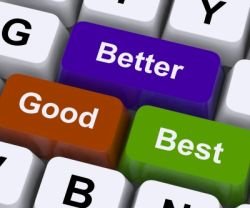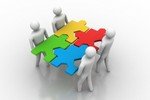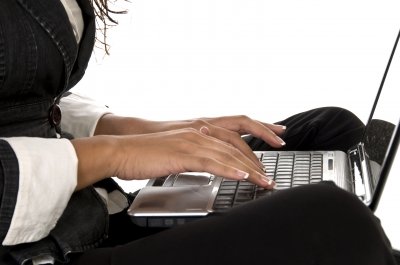Image courtesy of imagerymajestic/ Ideo go/ David Castillo Dominici FreeDigitalPhotos.net
A computer is a general purpose device that can be programmed to carry out a set of arithmetic or logical operations. Conventionally, a computer consists of at least one processing element, typically a central processing unit (CPU) and some form of memory. The processing element carries out arithmetic and logic operations, and a sequencing and control unit that can change the order of operations based on stored information. Peripheral devices allow information to be retrieved from an external source, and the result of operations saved and retrieved.
Source: Wikipedia
Source: Wikipedia

How to keep your PC running smoothly
In the era of high-speed Internet connections and mushrooming of technologically advanced software , the risk that your computer may suddenly crash is increasing significantly. Here are some useful tips not to let it happen.
Having an antivirus programme working in the background ensures your PC is protected against malware such as: viruses, backdoors, rootkits, Trojan horses, worms and spyware. Update the virus database with the latest signatures at least once a day. Remember, you can have only one AV software installed on your computer. Installing additional antimalware protection causes system crashes and slows your computer down.
Rather than cleaning Internet history or temporary files manually, download all-in-one clean-up utility which performs all tasks for you automatically. In addition to sweeping function it also helps to optimize windows registry and defrag and reorganise fragmented files. It will not cost you a penny to install CCleaner or a basic version of Advanced System Care. If you want a professional edition, you will have to spend some money. It is worth the price and will definitely boost your computer.
Get rid of programmes that you no longer use. They may fill up your hard drive and reduce the amount of RAM (Random Access Memory) and CPU (Central Processing Unit) which consequently result in decreased performance of your PC. Remember to perform a registry sweep after uninstallation to make sure there are no leftovers.
There are programmes and services that load along with your OS (Operating System) which may delay the system initial start-up. The principle is simple: the more programmes run simultaneously, the longer the OS loads. You can always deselect unwanted start-ups and services but remember not to disable Windows services and programmes unless you are aware of the consequences.
Likewise your desk may be cluttered with papers, your computer desktop may be full of the icons scattered all over the screen. Not only does a messy desktop look unprofessional, but also it is hard to find what you are actually looking for.
Log in as a user rather than an administrator. Accounts with some limitations make it safer to apply some changes to the system as they simply do not allow some actions. They also prevent viruses from spreading fast due to the restrictions placed upon a regular user account.
Do not open emails or attachments from unknown or anonymous recipients. They are highly likely to contain malicious software that may take over your computer, steal you confidential data such as: National Insurance number, bank accounts and credit card numbers or simply damage your software or hardware.
In the era of high-speed Internet connections and mushrooming of technologically advanced software , the risk that your computer may suddenly crash is increasing significantly. Here are some useful tips not to let it happen.
Having an antivirus programme working in the background ensures your PC is protected against malware such as: viruses, backdoors, rootkits, Trojan horses, worms and spyware. Update the virus database with the latest signatures at least once a day. Remember, you can have only one AV software installed on your computer. Installing additional antimalware protection causes system crashes and slows your computer down.
Rather than cleaning Internet history or temporary files manually, download all-in-one clean-up utility which performs all tasks for you automatically. In addition to sweeping function it also helps to optimize windows registry and defrag and reorganise fragmented files. It will not cost you a penny to install CCleaner or a basic version of Advanced System Care. If you want a professional edition, you will have to spend some money. It is worth the price and will definitely boost your computer.
Get rid of programmes that you no longer use. They may fill up your hard drive and reduce the amount of RAM (Random Access Memory) and CPU (Central Processing Unit) which consequently result in decreased performance of your PC. Remember to perform a registry sweep after uninstallation to make sure there are no leftovers.
There are programmes and services that load along with your OS (Operating System) which may delay the system initial start-up. The principle is simple: the more programmes run simultaneously, the longer the OS loads. You can always deselect unwanted start-ups and services but remember not to disable Windows services and programmes unless you are aware of the consequences.
Likewise your desk may be cluttered with papers, your computer desktop may be full of the icons scattered all over the screen. Not only does a messy desktop look unprofessional, but also it is hard to find what you are actually looking for.
Log in as a user rather than an administrator. Accounts with some limitations make it safer to apply some changes to the system as they simply do not allow some actions. They also prevent viruses from spreading fast due to the restrictions placed upon a regular user account.
Do not open emails or attachments from unknown or anonymous recipients. They are highly likely to contain malicious software that may take over your computer, steal you confidential data such as: National Insurance number, bank accounts and credit card numbers or simply damage your software or hardware.

































































